I. PULSE
Light over the Hudson recovers a Caribbean I have
never seen.
We list islands: Molokai, Oahu, Kauai; St. Lucia,
Haiti….
The surf folds tunnels of light
while a hand folds over a wrist (tell-tale pulse),
counting. The long tunnel is a wrist of blown spume.
It is like a dance, I think, this silence full of questions.
Pulse-beat; pulse-beat. Pulse. Pulse.
I push my hair back into the memories of palm trees,
brushing my hands and my hair on the islands.
2. night MUSIC
Garlic and sapphires in the mud...
T.S. Eliot
The window opens onto a fire escape.
The Sausage Manufacturers’ Chamber Group, scattered
among potted geraniums and dying petunias,
plays Hindemith’s Kleine Kammermusik. The oboist,
his briefcase full of knockwurst and reeds, is suffering
from hiccups.
The cheerful notes—hiccups on oboe—float in through
the window.
Ralph turns in bed, a flailing arm upsetting the urinal.
Perhaps he is awake. A pale German shepherd
leaps through the window,
over the bars of the hospital bed, and begins to lick
Ralph’s feet.
Why are Ralph’s feet out of the covers? The dog looks
up, and says “Ralph,”
and walks up Ralph’s stomach to stare in his eyes.
“Where is your bone?” Ralph says; but the dog curls up
under Ralph’s left arm and falls asleep.
“Why not?” Ralph thinks. The musicians have departed,
only a faint odor of garlic lingering on the windowsill.
“I could call you Fritz,” Ralph says to the sleeping dog,
“or Cokie or maybe even Pepe. But I’ll call you Ralph.”
This time the music comes through the window
without hiccups and without garlic.
3. THE INVENTIONS OF SLEEP
A telephone call begins on the television set:
You are in a phone booth, headlights in the distance,
behind you couples strolling in a park. We almost know
each other’s names,
and I think about children moving out of darkness into
patches of light then back into darkness.
Their voices are a murmur under your soft voice.
“I’m tired now,” you say; “I haven’t been called before.”
In Manitoba winter, in loose snow thrown up by the
Canadian Pacific, elk burrow down,
their great antlers caught in the dining car lights. Their
heads turn to each other in snow,
muzzles, flanks touching under the snow line.
If I am asleep, your voice is folded under my arm,
and I whisper, “sleep well,” watching the antlers turn
to each other in loose snow,
the summer voices blurred by city traffic.
4. THE dark, THE DREAM
At 11:15, I will follow the last corridor into darkness.
At 10:30, when I had spoken to the darkness for the
first time, I had asked the darkness the names
of all the corridors, calling your name into every closed
door.
But tonight all of the doors are windows.
Hide and seek:
Helen George Barbara Tom Sheryl
of patches of fog on an Irish lake,
Roger watching swans vanish.
Muffie dancing Jim climbing the switchback
trail into light.
Margaret and Mike dealing the cards, Janet
asleep.
Lights go on and off back of the windows: I call your
name at the head of each corridor.
…not windows.
Vyvian hands me the negatives: ten seconds:
Theone on the far side of the car: four a.m., truth
balanced on a steering wheel;
ten seconds: my mother’s body falling toward darkness,
the dead child falling, Bob Pawlowsky falling: I
have no goodbye.
. . .
11:15: hide and seek, and the long corridor darkening
against night’s invention echo lengthening.
—my way now, calling.
5. SCARS
That little scar I’ll never see on the left underside of my
heart
or the almost-closed arteries opening and closing like
baby mouths
or the good artery, a tiny flow talking about
tomorrow….
Strange in the garden, watching two boys wrestle in
long grass,
their wheelchair friend in zebra-striped pajamas watching
the wrestling,
all three in the hungry shade of a magnolia.
Binoculars:
The boy in striped pajamas’ dense shouts: shouting,
shouting:
“Quit it, you cocksuckers! They won’t even let you
walk on the grass. Quit!”
They are hidden by the magnolia. I cannot hear them.
The long magnolia branches wrestle like boys’ white
arms and legs.
That scar in the groin: hernia. Punched hole in the
groin: heart catheter.
The new scar throat to belly.
Now they have helped the zebra boy back into the
wheelchair
and, pushing him up the hospital ramp, take turns
bumping shoulders.
“Quit it you pricks! Do you want me thrown out of the
place?”
I listen to my casual heart beating veins into arteries;
then I approach the zebra and his friends.
In Africa, wildebeest, impala, warthog gather at the
waterhold, nudging shoulders.
The gaunt flat-topped trees cast lion shadows,
vultures circling. Where are the sabre tooth tiger, the
mastodon?
I think of america cemented coast to coast, white
jet-trail scars for sky,
a loveliness of footprints jumbled on spring grass.
6. POST-OPERATIVE (1)
Fever again: 101 slow footsteps
on the beach. The footsteps are a conversation in the
waves.
“Come. I’m here.” I am walking toward the
long-haired woman
wrestling already her bright shoulders’ turning.
On the shore, gaunt lovers wrestle bone against bone,
rib cages interlocked, bone grinding:
slow footsteps music on dry sand
7. POST OPERATIVE (2)
joy crusted with pain:
fresh lava
breaking through
a shifting black map
in the crater pit:
Mauna Ulu: New Mountain.
Seabird, seabird, fly the old lava. In long light, at the foot of the pali, press in on the 40-foot spine, legs wrapping heads; arms, torso, genitals cradled in legs, a 40-foot snake, chain of love, birth chain, twisting in the long ocean light, an arm under the dark cloud brushing generations of lovers. Seabird, seabird, fly in on a long stroke of cold light.
8. POST-OPERATIVE (3): THE ELEVATOR
Elevator: a hand on my shoulder, a hand on the
wheelchair, hands brushing my hair…
or the blown hair of a woman shouldered in
sea-foam…
elk burrowing in loose snow…
or a mouth opening, closing mouths meeting.
In one step, I am free, my feet firm.
This is Manhattan, the cement island, below me the
Hudson roped in pale rain.
Three boys break into a run, dodging taxis.
Their jeans are tight wet skins, their wet faces masks.
“Run fast!”
The towers of the hospital shape sky.
Haiti, Kauai, Manhattan—white shoulders of the sea
breaking down every island.
A little box on a chain goes up and down: up
down.
Once, in a dream, the elevator reached top floor, then shifted sideways, finding another shaft; at basement, it returned to floor 1, returned to basement, floor 1, basement, then floor 10, floor 11—sideways on floor 11, doors opening into mouths.
A mouth in my heart says a name, calling. Then
another, another.
I brush dry sand from my arms that are streaming rain,
turning toward Broadway.






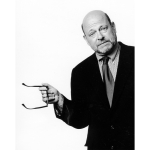


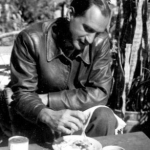
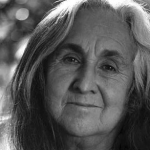

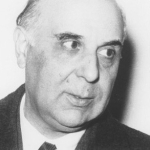
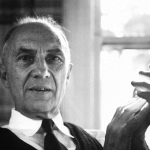
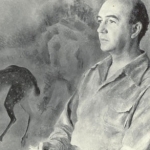
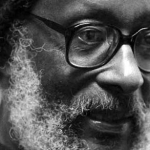


Comment form: